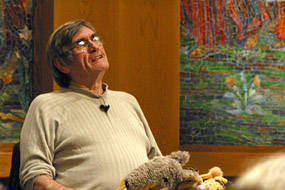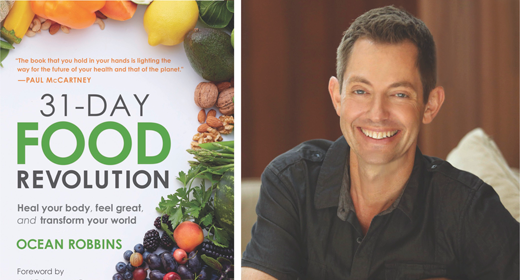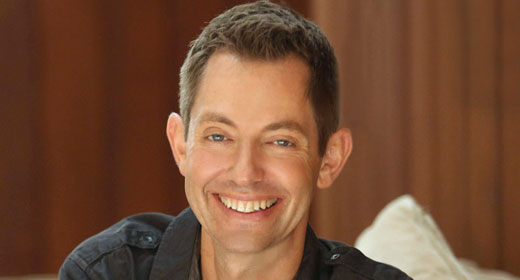by Michael Mendizza: The following is an edited interview with Dr. Marshall Rosenberg, founder and director of educational services for the Center for Nonviolent Communication.  The interview was conducted by Michael Mendizza of Touch the Future Productions in April, 2000.
The interview was conducted by Michael Mendizza of Touch the Future Productions in April, 2000.
MBR: Our training in Nonviolent Communication helps participates gain skill in expressing two things: (1) what’s alive in you right now, and (2) what would make life more wonderful. You learn how to say just that without any criticism or demand. Just say what’s alive in you, how you are in other words, and what would make life wonderful. And no matter what other people say, hear only what’s alive in them and what would make life wonderful.
NVC training focuses on teaching a “literacy of feelings and needs,” which is quite different than that which people have been trained in. Instead of speaking a language of life, or a language of feelings and needs, most people have been taught a language of criticism, moralistic judgments, analysis and diagnoses. Most people have been trained to say to other people, “the problem with you is…,” and they have a wide vocabulary for telling people what’s wrong with them. Any language that sounds to other people like a criticism, we suggest is a tragic way of expressing that your needs aren’t getting met.
Another form of communication that contributes to violence and which makes it hard for compassion to take place is any language that denies choice. Language of “have to”, “should”, “ought”, “must”, “can’t”.
MM: What do you mean by violence?
MBR: Most people refer to violence as physically trying to hurt another.
We also consider violence any use of power over people, trying to coerce people into doing things. That would include any use of punishment and reward, any use of guilt, shame, duty and obligation. Violence in this larger sense is any use of force to coerce people to do things.
Violence is also any system that discriminates against people and prevents equal access to resources and justice to all people.
MM: What change would you like to see in people who look at practicing your process? What’s your hope?
MBR: People can change how they think and communicate. They can treat themselves with much more respect, and they can learn from their limitations without hating themselves. We teach people how to do this. We show people a process that can help them connect with the people they’re closest with in a way that can allow them to enjoy deeper intimacy, to give to one another with more enjoyment and to not get caught up in doing things out of duty, obligation, guilt, shame, and the other things that destroy intimate relationships.
We show people how to enjoy working cooperatively in a working community. We show them how to transform domination structures, or hierarchal structures into working communities in which people share a vision of how they can contribute to life. And we’re thrilled with how many people all over the world have great energy for making this happen. We go into areas and find people that want to see if it works in the way that I say it does. They take the training and are often eager to work with us to make this available to others.
It’s amazing how effective this simple little process is. It’s simple in terms of its structure; it’s not very complicated, but it does require quite a paradigm shift in one’s values.
MM: Can you describe the paradigm shift?
MBR: Essentially it’s a shift that gets people to see a difference between moralistic judgments and need-serving judgments, or life-serving judgments.
Moralistic judgments are those built on an old fashioned theology that implies the human beings are very lazy, evil and violent. Therefore the corrective process is penitence. You have to make them hate themselves for what they’ve done, to believe that they deserve to suffer for what they’ve done.
The paradigm shift is away from that to a shift of judging in terms of whether things serve life or not. And if they don’t, to create the quality of connection between people that helps people to enjoy contributing to one another’s well-being.
MM: Sounds simple enough. What’s the most difficult idea or concept for people to really understand and apply?
MBR: It requires learning how to say what your needs are, what needs are alive in you at a given moment, which ones are getting fulfilled, which ones are not.
And that’s very hard for people. They have been taught to identify connection to their own needs as selfish and weak. They’re taught to believe that being a loving woman means you don’t have any needs. You sacrifice your needs to take care of your family. To be a courageous man you don’t have needs. You’re prepared to sacrifice your life for the king. Needs are not important. What’s important is obedience to authority. That’s what’s important.
With that background and history we’ve been taught a language that doesn’t teach us how to say how we are. It teaches us to worry about what we are in the eyes of authority. What will they think of me? Will they think I’m stupid? Will they think I’m competent?
When our minds have been pre-occupied that way we have trouble answering what seems to be a simple question, which is asked in all cultures throughout the world, “How are you?” It is a way of saying what’s alive in you. It’s a critical question. Even though it’s asked in many cultures, people don’t know how to answer it because they haven’t been educated in a culture that cares about how you are.
The shift necessary requires being able to say, how do you feel at this moment, and what are the needs behind your feelings? And when we ask those question to highly educated people, they cannot answer it. Ask them how they feel, and they say “I feel that that’s wrong”. Wrong isn’t a feeling. Wrong is a thought.
So we ask them again, “How do you feel?” “Well, I feel that when somebody does something like that, it’s evidence of a personality disturbance.” “I’m still not making myself clear. How do you feel?” “Well I don’t have any feelings about it.”
And they’re not lying. When your mind has been shaped to worry about what people think about you, you lose connection with what’s alive in you.
We teach people to use the judgments they’ve been taught to have as a window to their soul, to their heart, and to look behind the judgments, to the needs that are behind the feelings. It’s as if we were teaching them a second language. It’s more a coming back to our first language. As I have said, as an infant we were in touch with our hearts. We were communicating what was alive in us, whether it was pain or pleasure, and communicating it very directly.
MM: What happened in your childhood that helped give rise to some of your current insights?
MBR: My family moved into Detroit just in time for the race riots of 1943. We were coming up from the south, as many families did in that time to get jobs in the war industries in Detroit.
In the south, blacks and whites were segregated. When they came into Detroit they were in the same neighborhood. It was a tinderbox just ready to explode.
We had the race riots of 1943. It was the second worst race riots in the United States. About 33 people were killed in three days. That was my first exposure to that kind of violence. I realized that this is a world in which you can be hurt simply for your skin color. Then there was a good deal of violence directed at me for being Jewish. In that neighborhood, anybody who was different, there was going to be violence.
MM: One feels the need to be aggressive just to survive in that kind of world.
MBR: It was a frightening and depressing never feeling safe. Wondering how to get home from school without being beaten or humiliated. My family, some of whom had come from Europe, they did their best to make me feel better. What they would say to me is “Just be glad we’re here. If we were living in Germany now you’d be dead. We’d be put into an oven.” That didn’t make me feel very secure about this world. My family members said what very often people under these circumstances do. They told me, “Hit them first and they’ll leave you alone.”
MM: Was there one thing that impacted you most at this time?
MBR: I discovered that there were two kinds of smiles. One kind of smile was on the face of people watching as I was being beaten by a group. As much as the beating was frightening, I remember looking up and seeing the observers enjoying it, enjoying watching me being hurt and humiliated because I was a Jew.
When I came home, I saw a different kind of smile. My Grandmother was paralyzed. We were poor so she was cared for in our dining room by my mother. An Uncle would come over every evening to help my mother take care of my Grandmother. While he was cleaning up my Grandmother, which to me would be a horrible job thinking of it as a child, I saw him smiling the whole time he did it, with a beautiful smile!
So there are these two kinds of smiles in the world. There are the people like my Uncle who get joy out of serving in some way, and the other kind of smile of those people who enjoy people’s suffering.
That started this question in my mind: How could that be? Why do some people enjoy contributing to other people’s well-being, and others want people to suffer? Slowly I discovered that my Uncle was expressing our true nature. I’m convinced that there’s nothing that human beings like more than to contribute to one another’s well-being. And the other kind of smile, the kind that teaches us to enjoy other people’s pain, we get that from education, education that’s left over from domination systems, systems in which a few people dominate many. That history has trained us to think in ways that support those systems and their violence.
MM: What do you mean by “educating us in ways of thinking which support violence”?
MBR: I’m talking the way we are educated by the family and by the church. For many centuries the church, and through the church, the family and public institutions, have been conditioning people to think that human beings are essentially evil, and that the corrective prescription is penitence. You have to make people sorry for what they do. It has justified punishment, guilt, and shame. And this way of thinking and its language contributes to violence.
MM: You are suggesting that there is another way of looking, thinking and languaging which does not contribute to violence?
MBR: I firmly believe that it’s more natural for human beings to contribute to one another’s well-being. That’s our nature. This is very strange to many people who are responding to what we’ve been taught for centuries, that human beings are evil, that they are just like animals, selfish, and violent. They say, look around, you must be naïve.
But day after day I become more conscious that our nature is to enjoy contributing to one anthers well-being. There’s nothing that people like better than to contribute to other people’s well-being, provided that you don’t try to take it from them. You don’t demand it from them. You don’t try to coerce them into giving it. If so, then the very people who would enjoy giving it to you, they might want to hurt you.
MM: When did you discover this connection between language and violence?
MBR: While I was still in graduate school I saw the limitations of a field that was based in psychopathology, especially when the field was so mixed up with value judgments. So I did a cram course in comparative religions. Religions were trying to define how we were meant to be.
The word “love” was central to all of them. I wanted to understand the love that they were all talking about and discovered it was a certain quality of connecting with one another. Two qualities seemed to be present when people were acting like real human beings. People were honest without criticizing or insulting. Their honesty came from the heart. And there was a certain quality of understanding. Not a mental understanding, but an understanding that involved presence, fully being with another person or with empathy. Those two things were very important; this honesty and empathy. But how do we manifest this? That’s where I learned about the importance of language.
If our head is filled with certain kinds of language and a certain way of thinking, it becomes very hard to be honest in the way that I saw was important, very hard to be empathic, understanding of the other person. I started to identify those language patterns and communication patterns that got in the way of this quality of connection.
MM: Might there be two different systems at play here? One is completely non-verbal. The bonding of a mother to her baby for example, doesn’t require spoken language at all. Empathy may be first and foremost non-verbal. Thinking and language seem to be in another order of experience. I’m wondering if our use of language and what we call “thinking” clouds our direct and immediate perception of what your call empathy and understanding?
MBR: The quality of connection that I’m talking about can occur very clearly without any words at all. There are also times when words can help very much, or, if you were educated the way I was, the words make it very hard to create this quality of connection. The quality can be maintained without any words. Some words can help and some words get in the way.
MM: Lets talk about language.
MBR: When you were three months old and it was at 3:00 in the morning, you didn’t wake up and say to your parents, “Parents, how can you be so insensitive? I haven’t eaten in four hours. Get your lazy butt out of the bed and feed me.” If we communicated that way we would have starved. We didn’t learn that kind of violent communication until we were educated. What kind of communication were we doing as a child? We called to people’s attention our feelings and needs. When we were in pain, we called it to people’s attention because our needs weren’t being met. That’s a natural form of communication. When we were having our needs met and feeling pleasure, we showed that non-verbally through our smile.
Our training shows people how to do that with words. How to be very clear when your needs are not getting met and what feelings you have, what your requests are from others, and when you are having your feelings met, how to celebrate that by saying clearly what feelings you are feeling now and what needs are getting met.
MM: Your approach to Nonviolent Communication involves four basic steps. What are they?
MBR: Of the four components that we teach, three of them answer the question, what’s alive in you?
One of them is, “what are you reacting to?” What is either making life wonderful, or what isn’t? It’s very important to identify this, to be specific about it. We call that an observation. Can you make a clear observation without mixing in any diagnosis, any evaluation?
A second component is, “how do you feel about what you’re observing?” And the third is “what needs of yours are connected to your feelings?” Observation is what people are doing. Second, how do you feel? Third, what needs are related to this?
And then four, what would make life more wonderful? Make a clear request. Who would you like to take what action to meet your needs? So three of these components are involved in answering the question, what’s alive in you? The other is what are your requests in relationship to what’s alive in you that would make life more wonderful for you? The other part of the process is to receive the same information back from other people, regardless of how they communicate. In this respect, we show people how to translate any message that comes at you into what that person might be feeling and needing and requesting.
MM: How do we function in a world that is built on hierarchical, oppressive structures and not fall under its control?
MBR: Of course it’s very difficult to live in harmony with human values and function in institutions that are not supporting those values. So we try to address that in our training.
We try to give people practice in how to stay in touch with life, with your life and the life of others, even within these trying circumstances, when the very system itself is encouraging people to behave in competitive, brutal ways. Until we transform the structures, we need to eliminate the power of the structure to transform us.
Yes, we’re aware of the pressures that you’re under in that organization, but never let the organization determine how you connect with life. Be conscious of how you choose to connect with each human being. Make that connection come from choice. Just hear the needs of the people, and don’t get caught up in the rhetoric, the pomp and circumstance.
MM: Are you saying that it doesn’t really matter what the person is saying? Screen out certain wavelengths and hear other wavelengths that reflect more of their humanness?
MBR: We use some images to help people with that. We talk about different kind of ears to put on. We talk about “de-humanization ears” that you can put on so if somebody calls you a name, like they say you’re stupid, we show you can put de-humanization ears on facing inward and you can allow that statement to de-humanize you. How? You hear it and take it personally. You believe it. You believe you are what this person called you. That’s what I mean by de-humanization ears.
Or you can put the ears on the other way and de-humanize the other by thinking of what’s wrong with them for doing it. Instead of both of these options, we talk about putting on “life ears”, ears that connect us with life. And we show people that you have this choice every moment, and which ears you choose to put on determines what world you’re living in at that moment. Whether you’re living in a world of life, or a world of de-humanization.
MM: How does your work apply to children and parenting?
MBR: I suggest that we get rid of the concepts of children and parents. Just seeing somebody that way can make them less than human. I do parent workshops, and I’ve taken half the parents and put them in one room, half in another and I give them a roleplay to work on. They’re supposed to predict what the other person would say if a person has borrowed something of yours and didn’t return it to the place you would have liked. I tell half of the parents the other person is their next door neighbor and I tell the other half it’s one of their children. We have their response up on the board and don’t tell the other side that there’s a difference. Then we ask which group showed the most love and respect to the other person? And everybody agrees every time that the neighbor gets more love and respect. In a domination culture we learn all kinds of things about children that allow us to dehumanize them.
We teach a process of human communication that is the same for everybody. It’s a way of expressing clearly how you are and what would make life wonderful, hearing how the other person is, what would make life wonderful. If there’s a conflict, we search for ways of getting everybody’s needs met. So we teach people how to respond to their children, without punishments, without rewards, what we call a dialogue, by making a connection.
MM: Service seems implicit in your entire framework, doing things not out of obligation but for the joy it brings to serve life.
MBR: No human being has ever done anything for anybody else. Everything we do is to make life as wonderful as we can for our self. What makes life more wonderful than anything else is contributing to the well-being of other people.
We talk about self-fulness. Doing things out of the natural joy that comes when our only motivation is to enrich lives and it’s free from any taint of fear of punishment if we don’t, hope for reward if we do — including hoping people will like you — guilt, shame, duty, obligation.
MM: You talk about celebrating life. What do you mean by celebration?
MBR: Human beings have enormous power to enrich life. We can use words to contribute to people’s enjoyment, their wisdom. We can use words that can make life miserable for people. So our words are very powerful. We can touch people in ways that give great pleasure, great nurturing, support. We are powerhouses, and there’s nothing we enjoy doing more than to use that power we have to enrich lives. So isn’t it wonderful that we have this power and the joy it brings when we use it? That’s to be celebrated. Wow! And the more we celebrate that, the less we will be willing to do anything else.
We only get involved in violent games because we forget. We forget that we have this power, this possibility. In our training we suggest centering our lives around this celebration. How do we do that? Through gratitude. We show how Nonviolent Communication, in addition to its application in conflict resolution, can help us express saying thank you with greater power. We express it not as a reward. We don’t use “thank you” in the form of praise or as a compliment. We certainly don’t use it to try to get people to continue doing things, as a manipulation. We suggest saying “thank you” only when it’s a celebration of life. You want to celebrate how your life has been made more wonderful by what somebody did. How do you feel about it? Now that they’ve done that, what feelings are in you and what needs were fulfilled? We teach people how to express gratitude in that way.









































